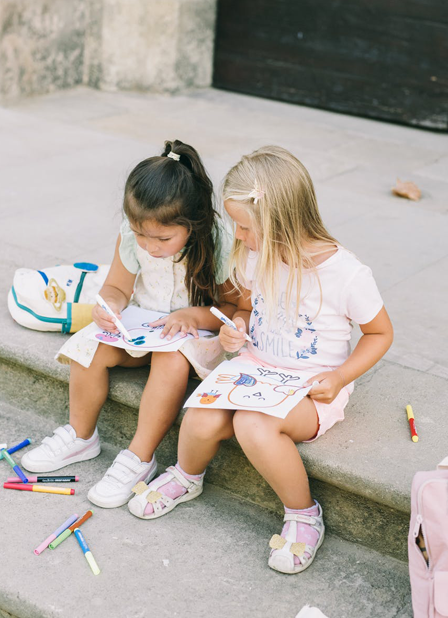The Importance of Friendship for School-Age Children
During the periods of lockdown, when most children have been unable to go to school, a good deal of concern has been expressed about the education they've missed. This is a serious issue, though children whose parents who have been able to home-school them or hire private tutors may not have suffered too badly. However, there's another reason why school can be important — the social aspect. Many children have been missing out on spending time with their friends.
the periods of lockdown, when most children have been unable to go to school, a good deal of concern has been expressed about the education they've missed. This is a serious issue, though children whose parents who have been able to home-school them or hire private tutors may not have suffered too badly. However, there's another reason why school can be important — the social aspect. Many children have been missing out on spending time with their friends.
How Do Children Form Friendships?
From the age of around four, children will start being selective about who among their peers they want to spend their time with and will form emotional bonds to those people. As they spread their wings beyond family, these will be the children they'll to sit with during lessons (if allowed) and spend break times playing with. In general (although not exclusively) these friendships will tend to be with children of the same sex, and there are various psychological theories about how these relationships will help to underpin the child's gender identity — though this is by no means universally accepted. Broadly, groups of boys will tend to play rough and tumble, especially at primary age, while groups of girls will tend to interact more by talking.
Most of these friendships are likely to be based on shared interests, and this aspect generally grows in later childhood and adolescence, when anything from their worldview to their taste in music may influence friendships.
What Do Children Gain from Friendships?
· Having friends helps a child's empathy develop, making it easier for them to understand others and be generous.
· Having friends helps develop a child's emotional strength and ability to care for others.
· Having friends helps a child's social development, particularly around concepts of negotiating and sharing.
· Having friends, especially if the relationships are positive, tends toincrease a child's self-confidence and reduce stress.
· Having friends helps a child develop their communication skills, both verbal and non-verbal.
· Especially during adolescence and teenage years, friendships help young people prepare for how they'll interpret and interact with the world as adults.
Forming Friendships at School
Though young children might play with local neighbours or the children of their parents' friends, it's usually when they go to school that they're exposed to large numbers of their peers. This is when they have to learn to select who they feel drawn to and who they don't, and get used to the process of forming relationships. As they grow up, children may start making friends outside school — at a club, for instance, or playing sports. However, these friendships will still be formed using the skills they've initially developed by creating their first peer relationships. However, not all school friendships are necessarily positive. Some children (especially those who find it harder to make friends on their own terms) may end up connected with peers who either lead them into trouble or use them as convenient to bully. This can be a nightmare for the child, and is often one of the reasons that parents may choose to home-school their children.
Forming Friendships out of School
Whether children are being home-schooled or forced out of school by a lockdown, the biggest problem is the lack of peers to develop friendships with. If this isn't handled well, it can leave the child socially and emotionally awkward. Fortunately, there are alternatives to school peers. Perhaps the best way of ensuring your home-schooled child has the opportunity to form friendships, especially if they've previously found the process difficult, is to encourage them to take part in activities they love, whether that's football, dance or arts and crafts, where they'll meet children who share their interests.
Register with TutorExtra to find out more about helping your children during home-schooling, whether long-term or short-term.


